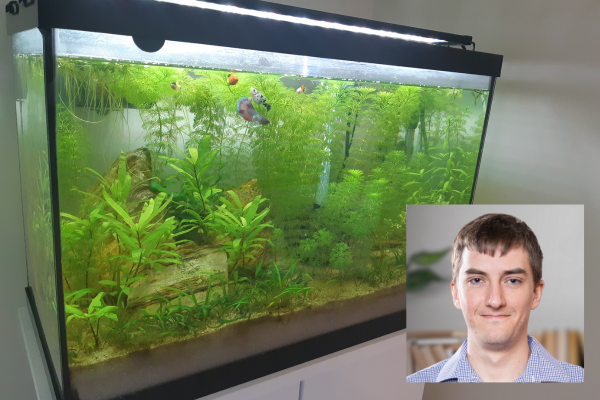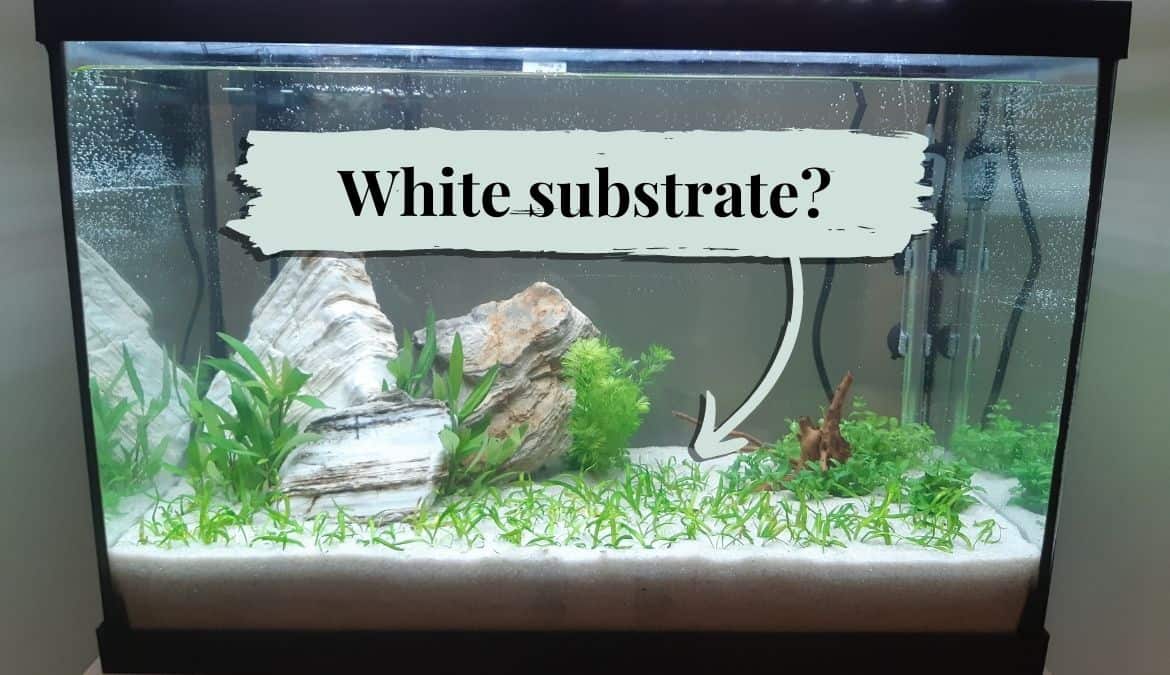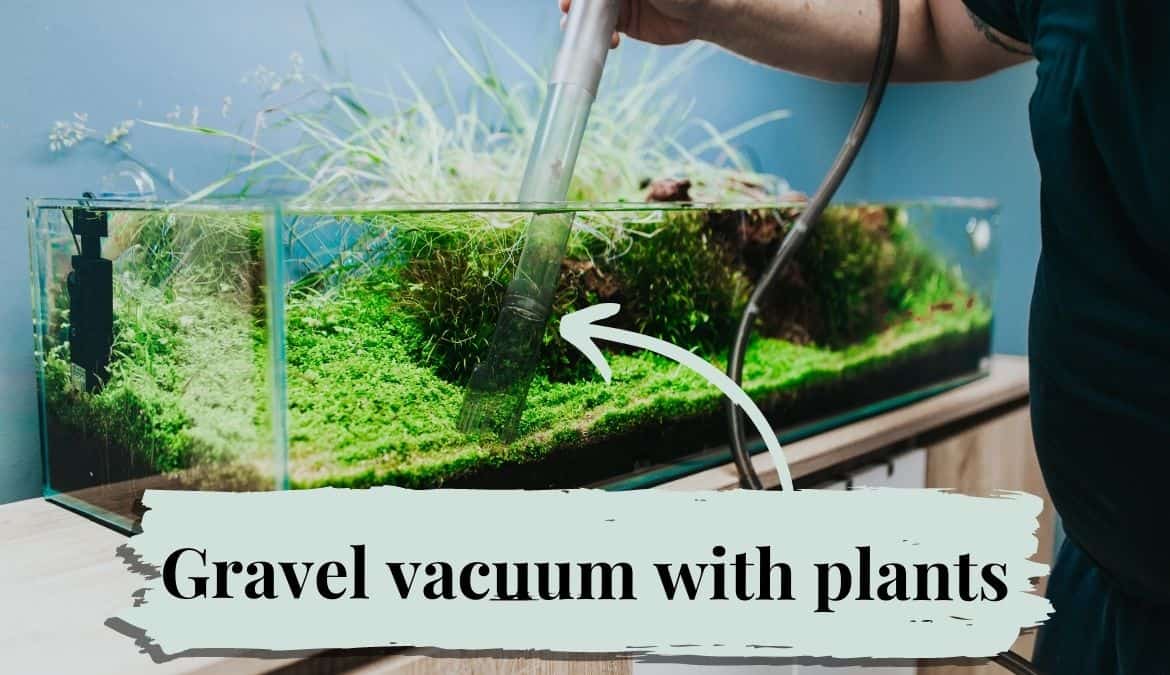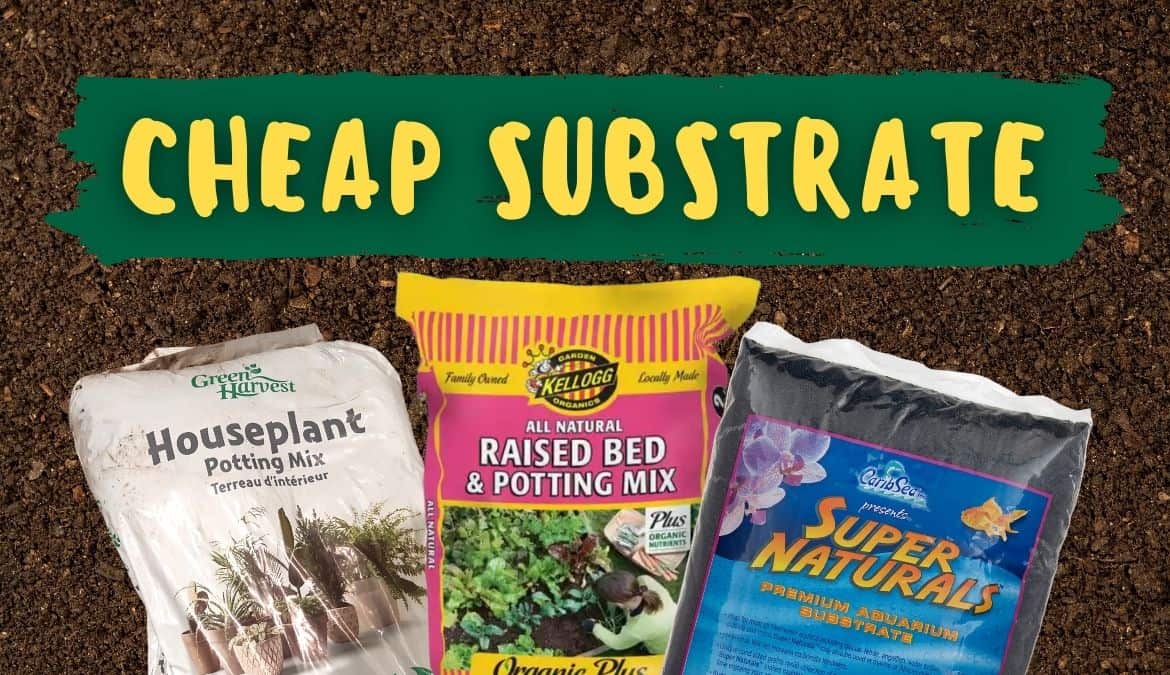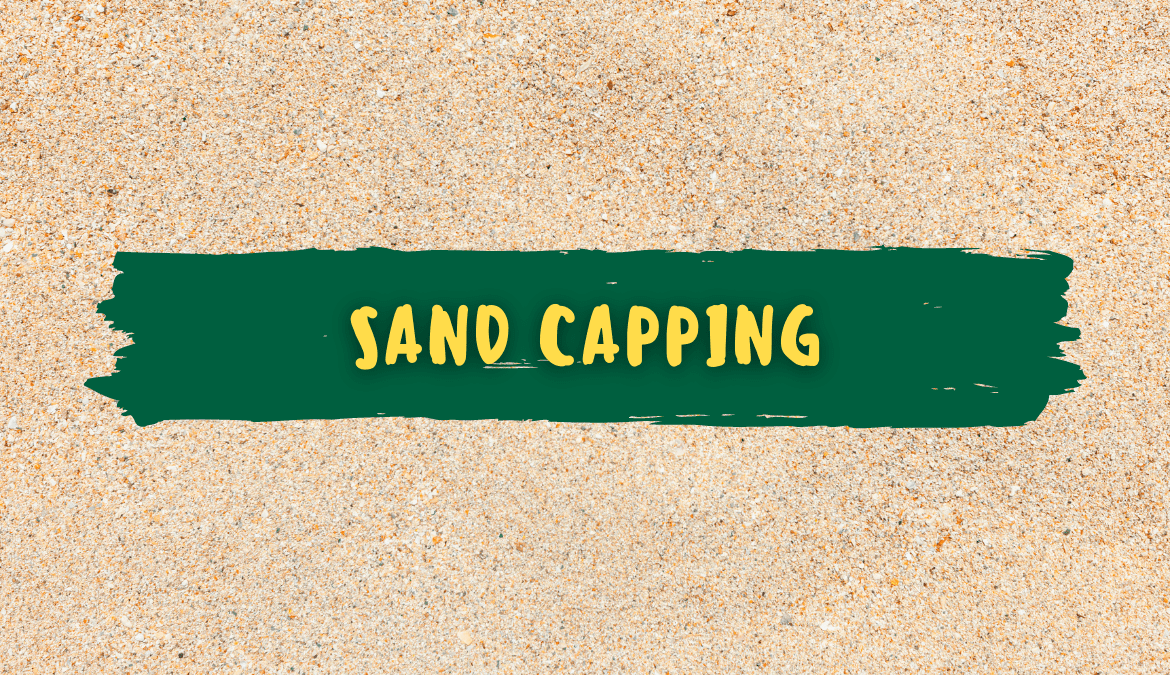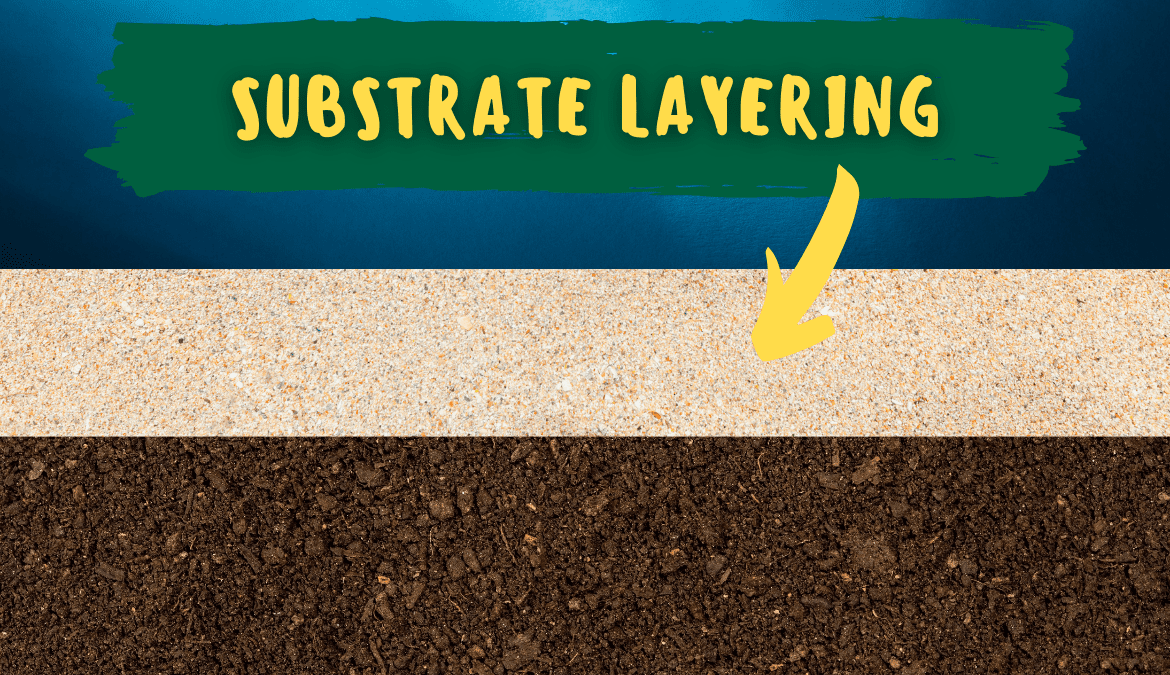Most aquarium plants grow best in nutrient-rich substrate that contains nitrogen, phosphorus and potassium. Inert substrates can be supplemented with monthly root tab fertilization. Epiphyte and floating plants do not require substrate at all.
This article aims to help you understand the importance of planted tank substrates so you can make a good choice for your aquarium.
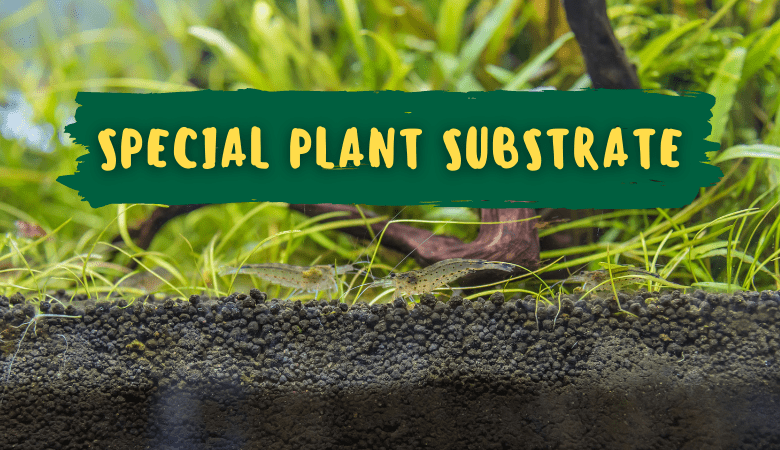
Contents
Most aquarium plants benefits from nutritious substrate
Most aquarium plants grow root systems and benefit from being planted in nutrient-rich active substrate. This is because active substrates are manufactured to contain macro and micronutrients that the plants consume.
Plants require high quantities of nitrogen (N), phosphorous (P) and potassium (K). We call these the macronutrients. Carbon (C) is also an important nutrient but it is acquired from carbon-dioxide (CO2) in the water column or from the atmosphere (if the plant is grown emerged).
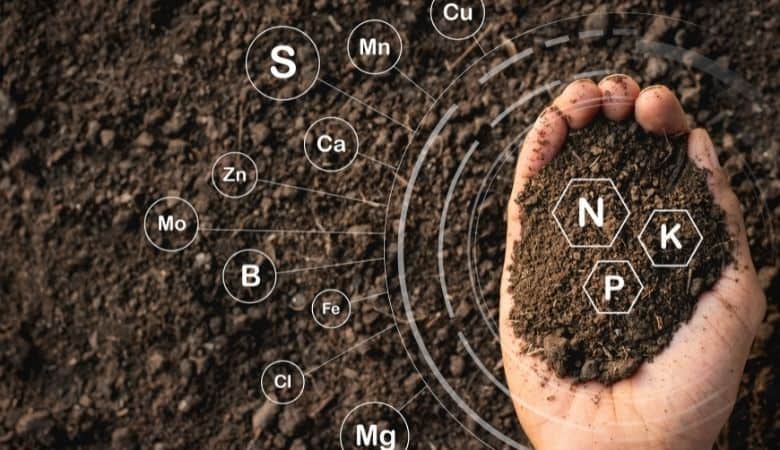
Manganese (Mn), iron (Fe), molybdenum (Mo) and other micronutrients are important for successful plant growth, but are required in smaller quantities.
Some aquarium plants require special substrate
Root-feeding aquarium plants rely more on substrate nutrients than others. This is because they tend to absorb more nutrients through their root systems than from the water column.
Therefore, it’s important for the substrate to be able to provide adequate nutrition because the roots are buried beneath the substrate.
Epiphyte plants do not need substrate at all
Epiphyte plants use their roots to anchor themselves to other plants and surfaces, like rocks and driftwood. But they do not take in nutrients to their roots in the same manner as other aquarium plants.
As a result, you can successfully grow epiphyte plants without any substrate at all.
There are also a variety of floating plants species, such as duckweed and frogbit, that float on the surface without anchoring to anything. These plant species absorb nutrients from the water column and take in carbon-dioxide from the air.
What type of substrate do aquarium plants need?
Active substrates contain nutrients from day one
Any substrate can successfully grow aquarium plants as long as it contains nutrients. Active substrates already contain these nutrients as you put them in your tank.
Commercially-made active substrates are also often refered to as aquasoils. Some of the most popular brands include Fluval Stratum, ADA Amazonia and CaribSea Eco-Complete.
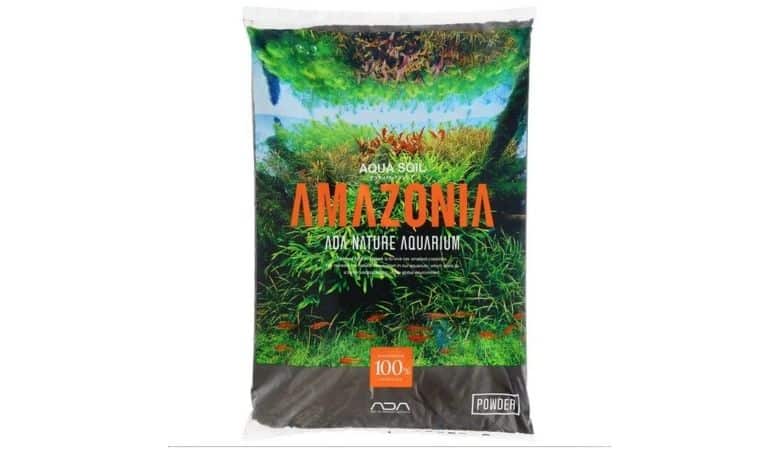
You can also use organic topsoil or organic potting soil from your local nursery. However, soil must be covered with a layer of sand or gravel to prevent it from clouding the water.
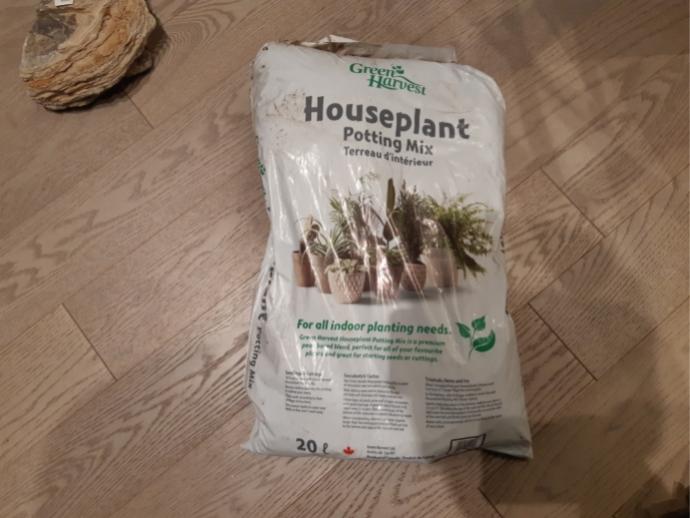
Inert substrates require root tab fertilization
Inert substrates do not contain nutrients and are not made of materials that may alter an aquarium’s water chemistry. Sand and gravel are examples of inert substrates.
Despite their lack of nutrients, inert substrates are still capable of growing healthy plant life if they are supplemented with root tab fertilizers.
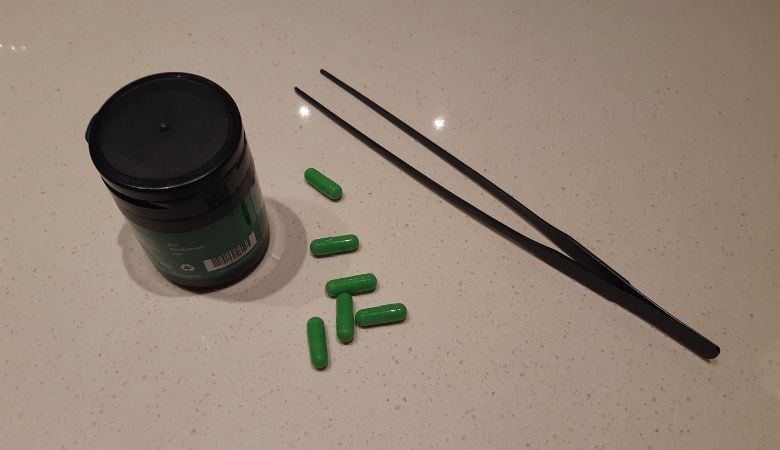
Root tabs contain nutrients and must be replenished monthly
Root tabs are sold by a variety of manufacturers. They are dissolvable tablets or capsules that contain the macro and micronutrients that inert substrates lack.
To use root tabs you simply bury the capsules every 4-5 square inches across your tank. The nutrients are then absorbed by surrounding roots.
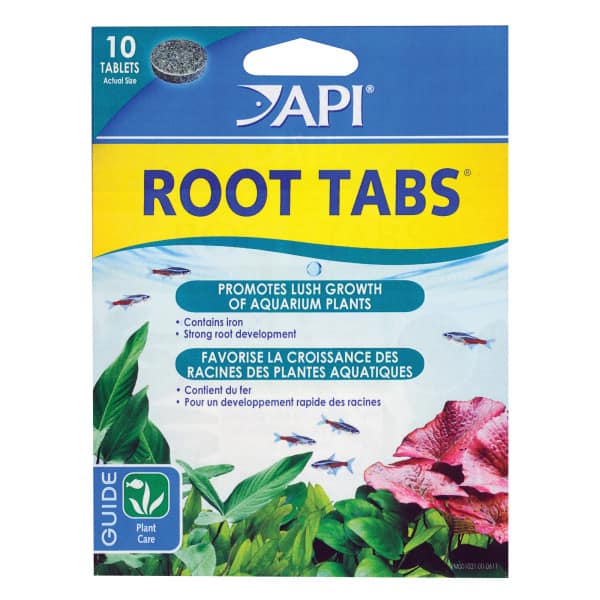
How often do you need to replenish root tabs?
Root tabs typically need to be replaced every 4-6 weeks, depending on your substrate and the nutritional demands of your plants.
Certain substrates have higher cation exchange values (CEC) than others. This means they are capable of storing nutrients for a period of time. This means that your root tabs may continue to provide adequate nutrition to plants for a slightly longer period of time if they’re not fully consumed by the plants.

